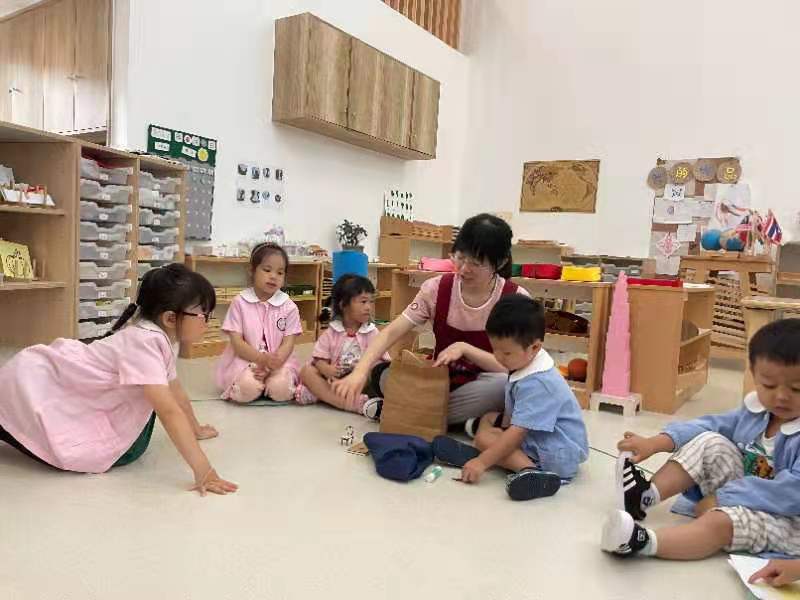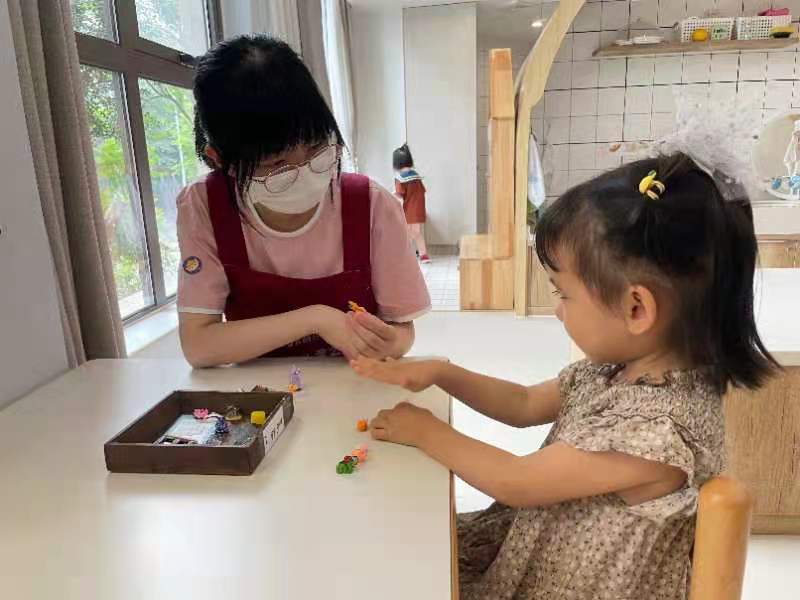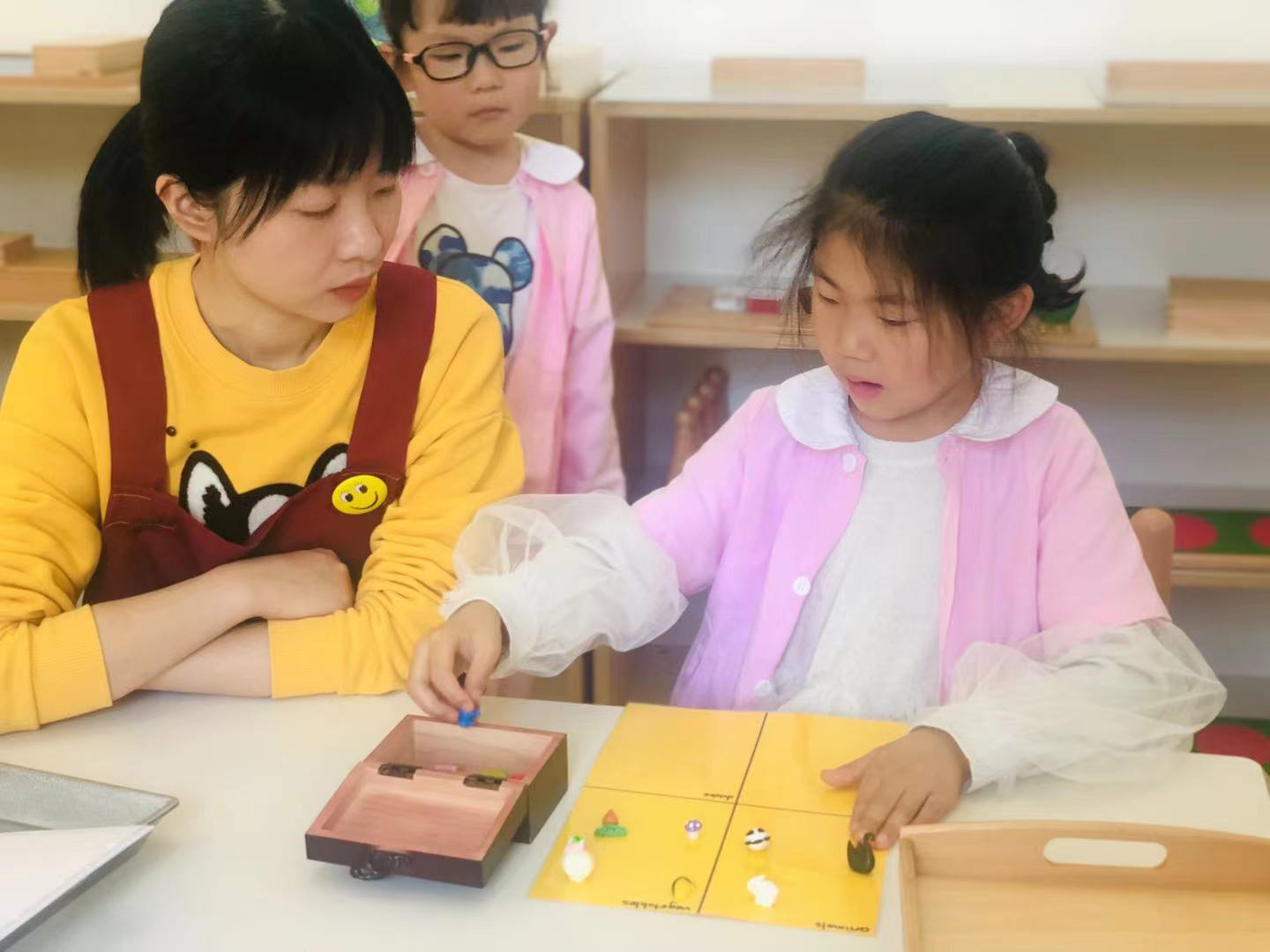Teaching English as an additional language in Montessori class
“蒙特梭利环境”里的外语教学
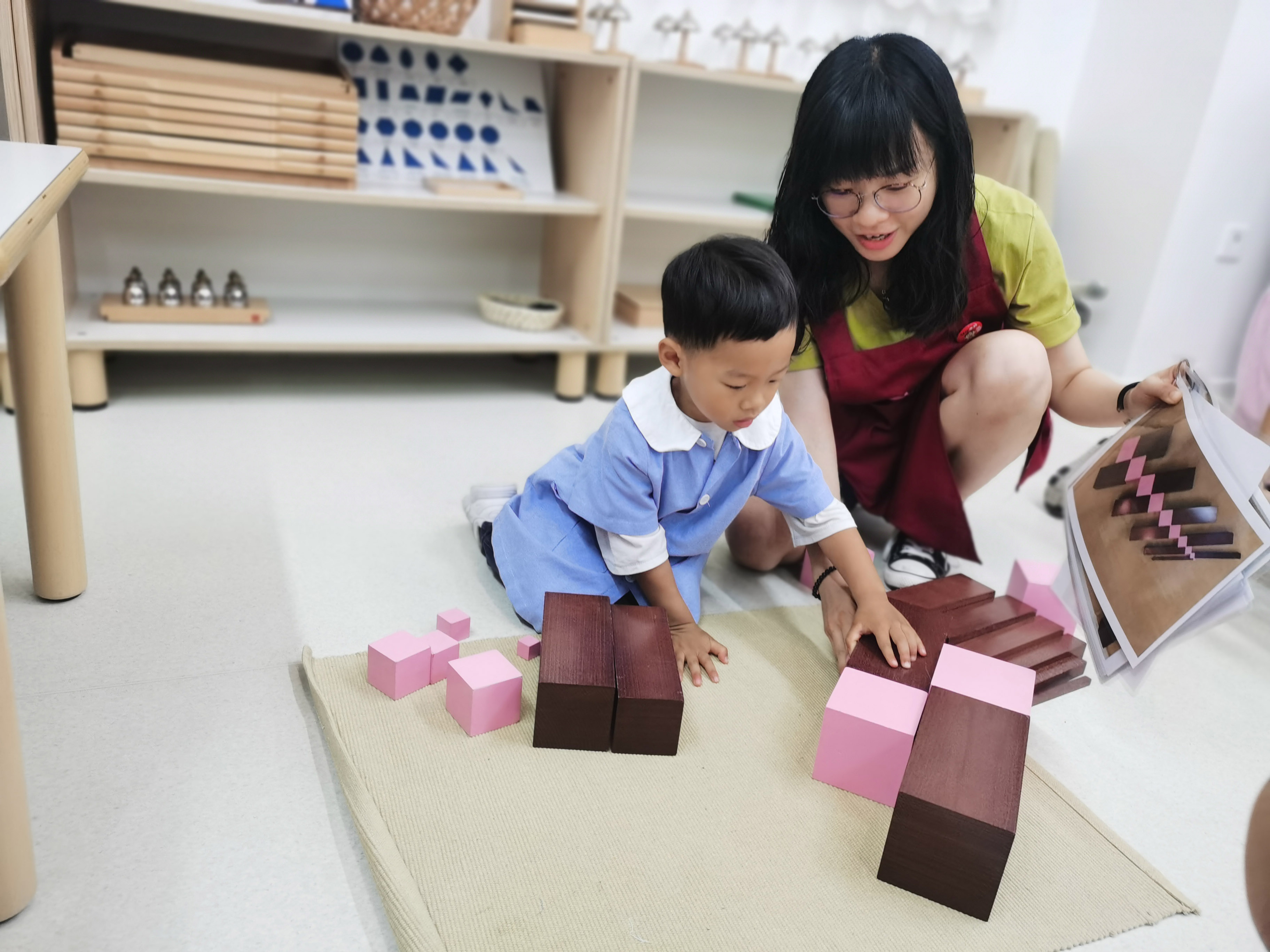
“Prepared Environment”, a frequently used word in Montessori education, is an important factor for children who are learning English in addition to another language or languages being spoken at home. A Montessori prepared environment is particularly suitable for facilitating second language acquisition and requires little adaptation to meet the needs of children learning English who are being immersed in the language.
“有准备的环境”是蒙特梭利教学中的高频词,对于打算将英语作为第二或第三语言的孩子来说,它同样也是其语言学习过程中一个至关重要的因素。一个有准备的蒙特梭利环境,不仅能帮助尚处于第二语言学习初级阶段的孩子更好地去掌握这门语言,同时对于那些已经能熟练运用第二语言的孩子来说,也几乎不需要他们做出任何学习习惯的调整,就能满足他们继续学习第二语言的需求。
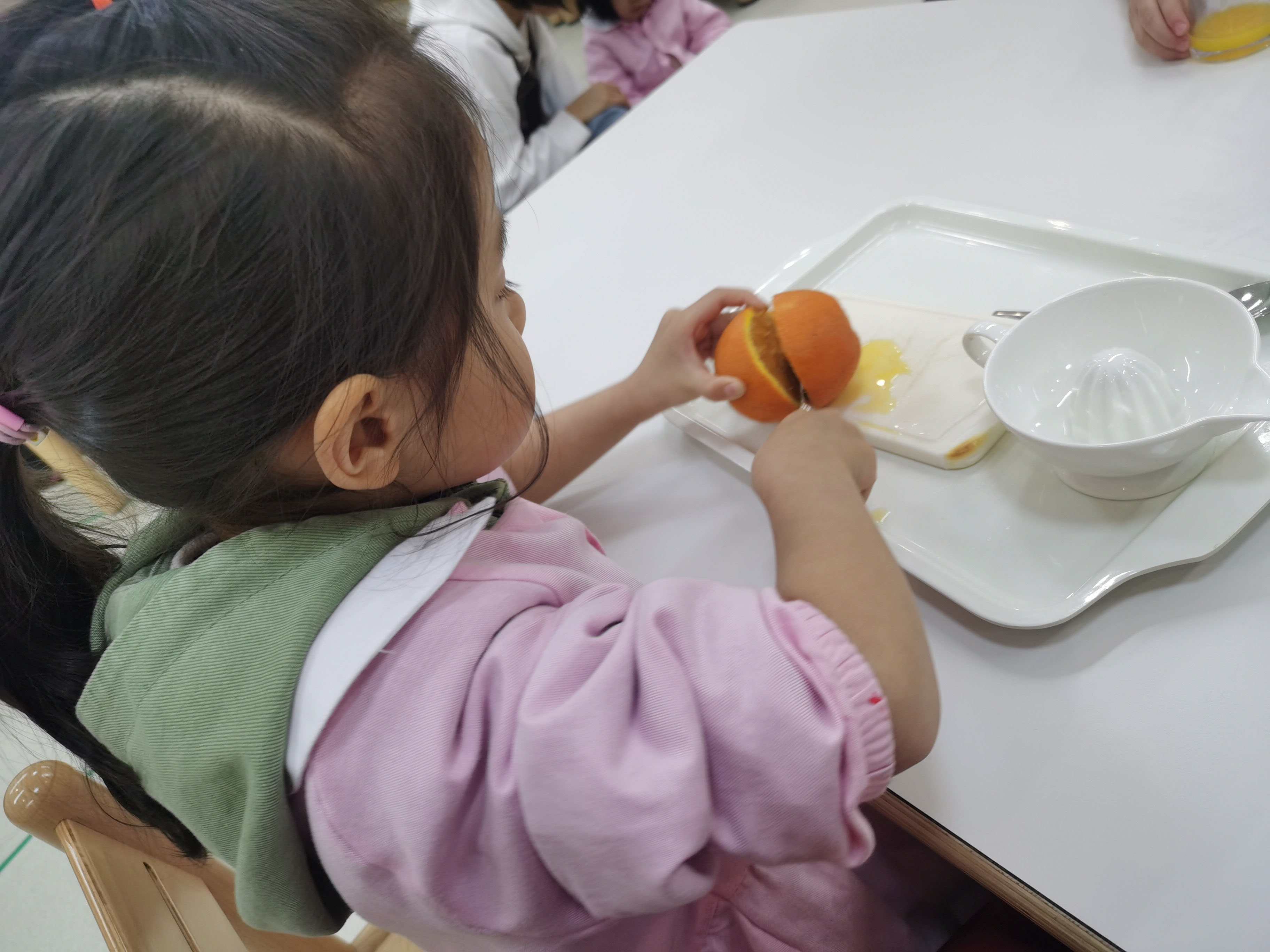
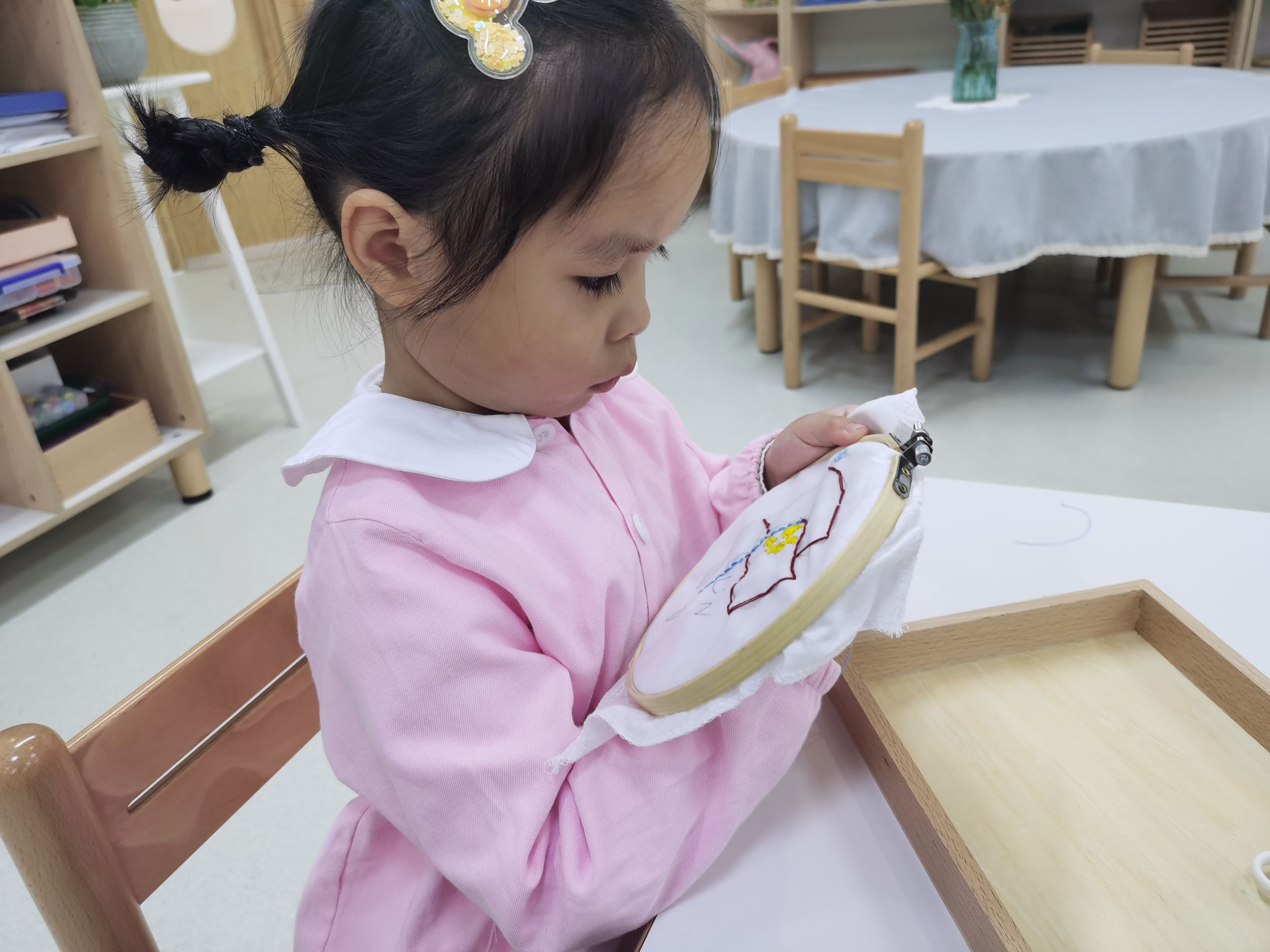
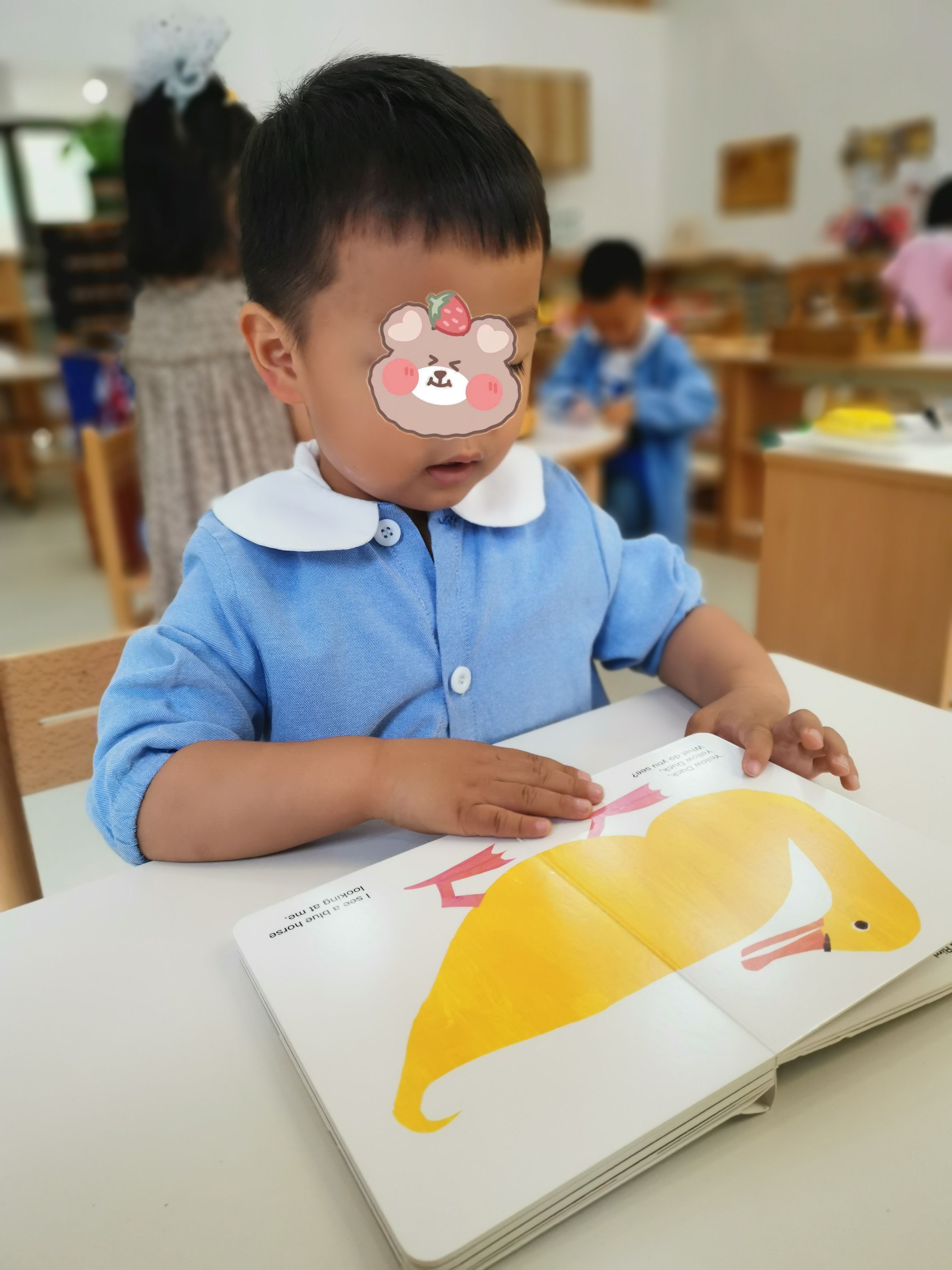
In Montessori class, a wealth of language is naturally generated through presentation of and practice with Montessori materials, and the interesting is even where these do not have language as their main purpose. For example, the presentation of Pink Tower could generate language such as cube, square, smaller than, bigger than, build, put on top of, and so on, depending on the language level of the child. The idea behind this is the child have chosen the activity themselves, they are already interested and self-motivated, thus making learning new vocabulary and practicing both productive, receptive and effective.
在蒙特梭利教室里,蒙特梭利教具的呈现和蒙特梭利工作的操作并不是将语言学习作为首要目的的,但有意思的是,孩子们丰富的语言学习却是可以通过蒙特梭利教具的展示和操作自然产生的。比如,粉红塔搭建这项工作可以帮助孩子们掌握:立方体、正方形、比...大、比...小、搭建、放在...上面,等词汇。当然,语言内容的难易程度取决于孩子们的语言发展水平。那么,为什么说孩子对于语言的学习可以和蒙特梭利工作同时进行呢?这主要是因为孩子在主动选择某些工作的同时,他们也获得了学习的内驱力和兴趣。也正是这份学习自发性,才能让孩子在工作同时也更高效地掌握了新词汇并进行了反复的语言练习。
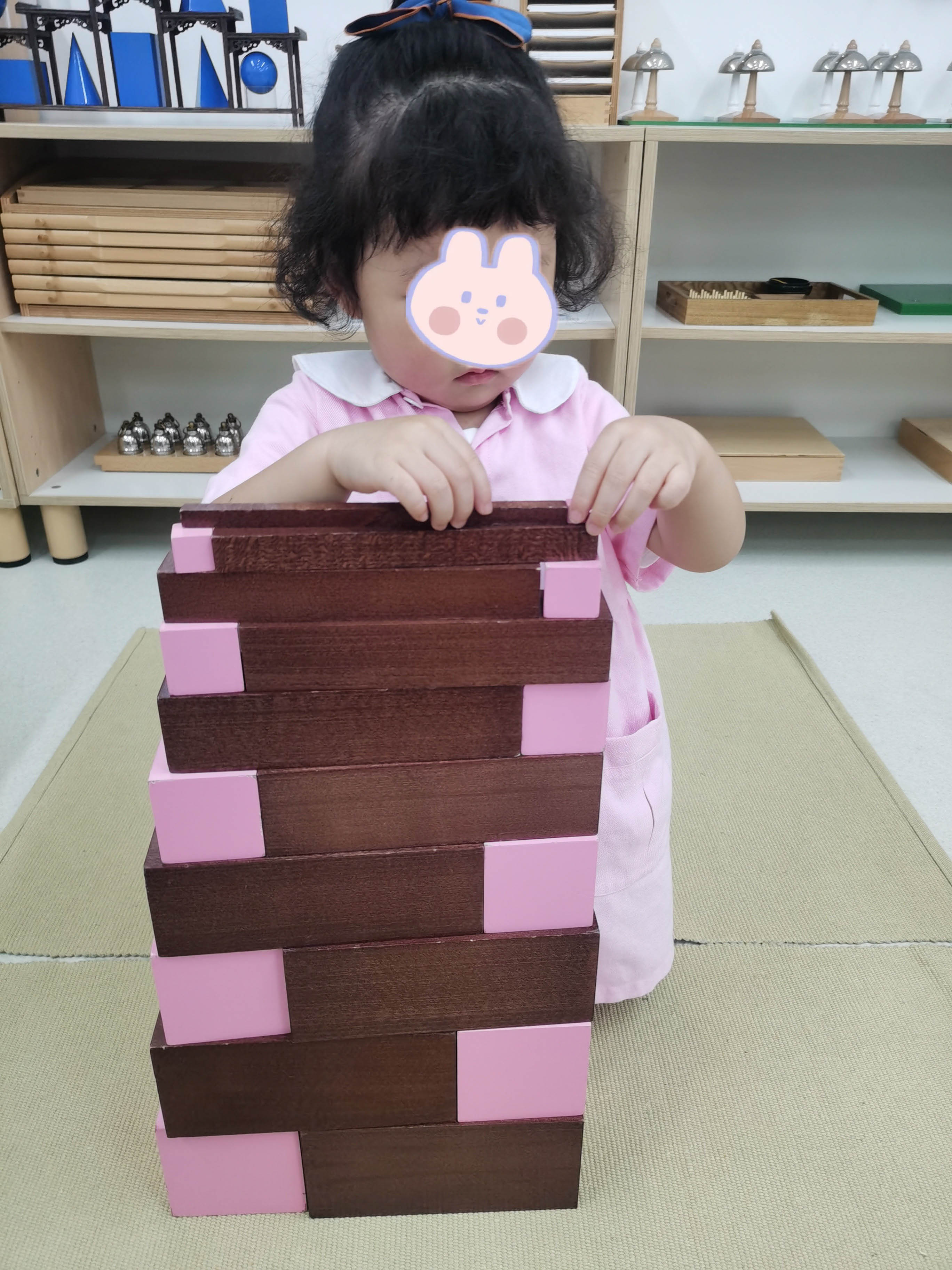
In Montessori Education philosophy, the teaching materials tend to be concrete objects, the logic behind this is emphasizing on the real and natural. Just because of this, children can learn though action and new language can be readily absorbed using this multi-sensory approach, because the child is activating many of their senses as they engage with the materials. By engaging their senses and using their hands to manipulate objects, children’s experiences naturally become committed to memory, along with the language that is used to describe them.
真实和自然是蒙特梭利教育理念里尤为重要的因素。在蒙特梭利教室里,孩子们能接触到的教具都是真实、自然、可操作的。正因为如此,孩子们在操作教具时,对真实教具的触摸和感知激活了孩子的多重感官体验,这一体验过程所带来的“复杂”感觉将自然而然地在孩子脑海中形成记忆,同时也形成用来描述这些触觉和感觉的语言。所以孩子们在操作教具时产生的多维度、多感官的体验过程更能帮助孩子更容易地去掌握和学习一门新语言。

